How Virtual Economies Have Altered Gaming Culture
16 March 2025
Gaming isn’t just about gaming anymore. What was once a simple pastime—grabbing a controller, sitting on the couch, and shooting zombies or solving puzzles—has transformed into a universe of its own. And at the center of this transformation? Virtual economies. These digital marketplaces have done more than just enhance gameplay; they’ve completely reshaped gaming culture.
So, what’s the deal with virtual economies? How did we get here, and how are they changing the way we experience games today? Let’s dive in.
What Are Virtual Economies?
Let’s start simple. A virtual economy is just what it sounds like—a marketplace that exists entirely in the digital realm. Think of it as an economy—like the "real world" one we live in—but designed and operated within a video game.In these economies, players buy, sell, and trade virtual goods or services using in-game currencies or even real money. Items can range from aesthetic skins for your character to powerful weapons that give you a competitive edge, or even virtual real estate. (Yeah, really. People are buying "lands" they can’t physically touch!)
Remember the time you spent hours farming gold in a game just to upgrade your sword, or camped out on eBay for a rare skin? That’s all part of the machine that is the virtual economy.
How Did We Get Here?
Back in the 80s and 90s, gaming was a much simpler affair. You’d buy a game, play it, and that was it. But as the internet progressed and online connectivity became more common, everything shifted.Massively multiplayer online (MMO) games like Runescape and World of Warcraft introduced us to the idea of trading with other players. Suddenly, the gold you earned and the rare gear you looted had value—not just in the game but, potentially, in the real world. And from there, virtual economies snowballed out of control.
Fast-forward to today, where games like Fortnite, Roblox, and CS:GO have thriving in-game economies worth billions. Billion. With a "B." Entire industries have cropped up to support these economies, from professional item traders to virtual auction houses.
The Appeal of Virtual Economies: Why Do Players Care?
You’d think spending actual money on something that’s not even tangible would sound absurd, right? Well, not so much. There’s logic—and emotion—behind why players dive headfirst into virtual economies.1. A Unique Sense of Ownership
We like to own stuff—whether it’s a car, a house, or, apparently, a flaming dragon skin for our character. Virtual goods give players a sense of achievement and identity in a digital landscape. It’s like collecting sneakers or designer handbags but for the digital age.2. Social Status and Flexing
Let’s be real: humans love to flex. Whether it’s bragging about your luxury car or showing off your rare Fortnite skin, virtual economies give players tools to express themselves and gain social clout in the gaming community. Remember when your buddy couldn’t stop talking about their collectible item that only 0.1% of players had? Yeah, that’s a thing.3. The Thrill of the Trade
Trading items or currency in a virtual economy can feel like Wall Street for gamers. There’s strategy, bargaining, and even luck involved—like opening a blind loot box and discovering a rare item. It’s exhilarating, and for some, it’s why they log in daily.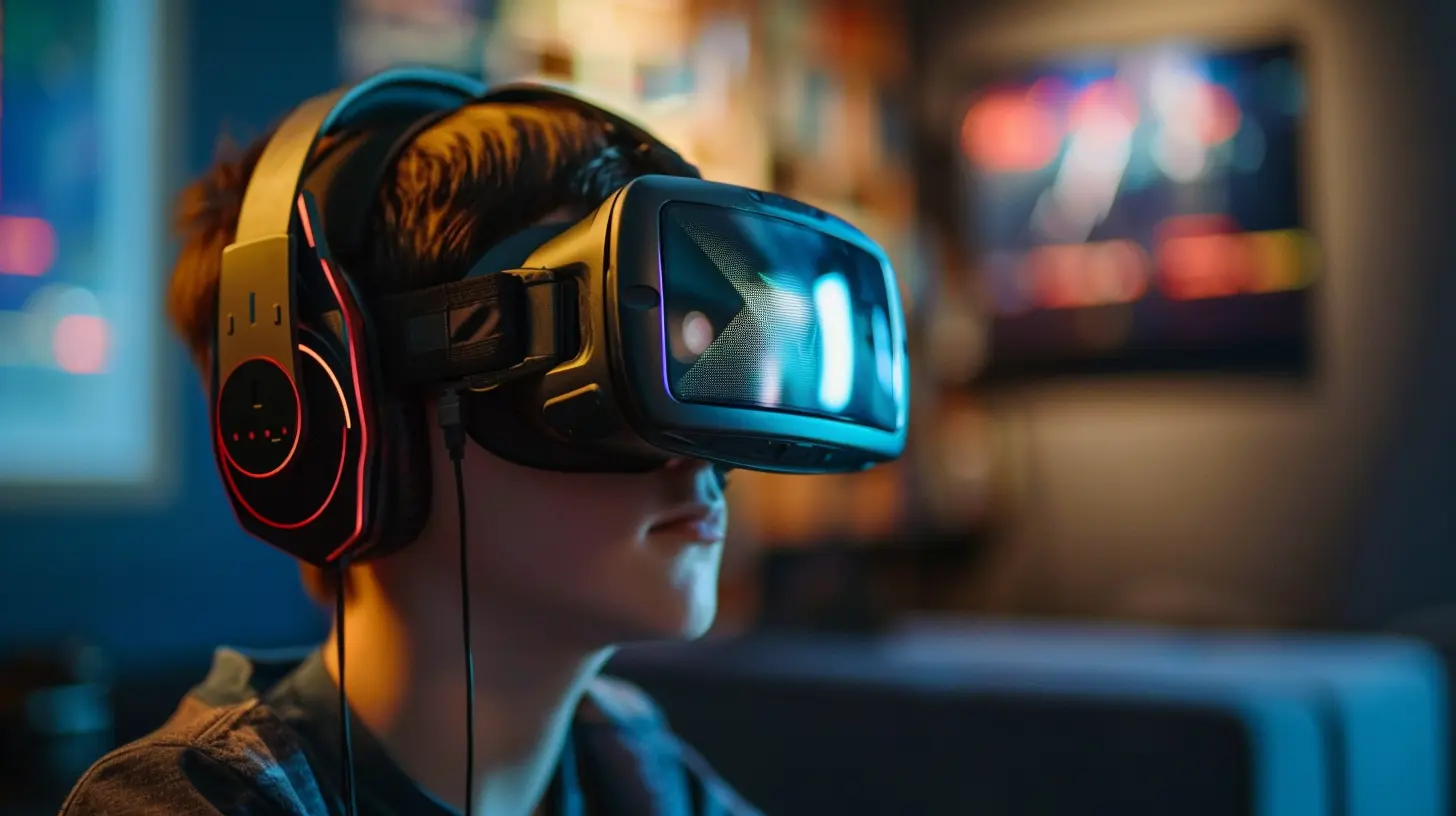
Virtual Economies Have Changed How Games Are Designed
Now, this is where things get interesting. Virtual economies haven’t just altered how players approach games—they’ve fundamentally changed how game developers create them.1. Games as a Service (GaaS)
The days of buying a game once and owning it forever are almost gone. With the rise of virtual economies, games are increasingly being offered as a service. Instead of just selling you a game, developers now sell you ongoing experiences layered with microtransactions. Think Fortnite’s battle passes or Call of Duty’s seasonal skins.2. Microtransactions and the Infamous Loot Box
Ah, the loot box. Love it or hate it, it’s here because of virtual economies. For those who may not know, a loot box is essentially a digital "grab bag" players can buy to receive a random assortment of items. Developers have monetized this "thrill of the unknown," turning it into a multi-billion-dollar industry.3. Player-Driven Content Creation
Games like Roblox and Minecraft have taken it one step further—allowing players to create, sell, and trade their own in-game content. This player-driven economy not only keeps the game fresh and engaging but also fosters entire communities of creative individuals.A Double-Edged Sword: The Good and the Bad of Virtual Economies
Of course, it’s not all sunshine and rainbows. Virtual economies are great—until they’re not. Let’s break down both sides of the coin.The Good
- Empowerment: Players can genuinely turn their passion for gaming into an entrepreneurial venture. Selling rare items or creating in-game tools can be a real source of income. (Second Life, anyone?)- Community Building: Trading and collaborating within virtual economies often strengthens player connections. Multiplayer games become less about competition and more about cooperation.
- Accessibility: Virtual economies sometimes allow players to experience premium content without spending real money. Grinding for in-game currency, although time-consuming, is an alternative to paying up.
The Bad
- Addiction Risks: The thrill of obtaining rare items (especially through loot boxes) can mimic gambling behaviors. For some, this creates unhealthy spending habits.- Pay-to-Win Culture: Hate it when someone buys their way to victory? You’re not alone. Virtual economies often blur the line between skill and financial investment in competitive games.
- Scams and Gray Markets: Where money flows, scammers follow. Black markets for in-game items have become rampant, leading to issues like account hacking and fraud.
The Future of Gaming and Virtual Economies
So, where are we heading? Are we all going to end up living in some giant Ready Player One simulation? Maybe. Virtual economies are blending with real-life economies more and more, especially with the rise of blockchain games and NFTs (Non-Fungible Tokens).Imagine owning a sword in a game that’s tied to the blockchain, meaning you could sell or transfer it between different games. It sounds like sci-fi, but it’s already happening. Games like Axie Infinity and Decentraland are pushing these boundaries, turning gaming into a legitimate financial frontier.
But with this progress comes challenges—regulation, fairness, and the ethical implications of turning games into financial ecosystems. Developers and players alike will need to navigate this new landscape carefully.
Wrapping It Up
Virtual economies have done more than just add a layer of depth to gaming—they’ve completely changed the way we think about, play, and even value games. They’ve brought new opportunities for creativity, collaboration, and entrepreneurship but also come with their fair share of risks.Whether you’re grinding for in-game gold, opening loot boxes, or trading virtual sneakers, one thing’s for sure: gaming isn’t just about gaming anymore. It’s a whole new world out there—one where the lines between the virtual and the real are blurrier than ever.
So, the next time someone raises an eyebrow at your online spending? Just tell them you’re participating in a digital revolution. Because, honestly, you are.
all images in this post were generated using AI tools
Category:
Gaming CultureAuthor:

Tayla Warner
Discussion
rate this article
7 comments
Matilda Russell
Virtual economies have transformed gaming into a dynamic community experience, fostering creativity, collaboration, and endless opportunities for players!
April 4, 2025 at 4:35 PM

Tayla Warner
Thank you for your insight! Indeed, virtual economies have revolutionized gaming by enhancing community engagement and encouraging player-driven innovation.
Nellie McFarland
Great read! The exploration of virtual economies really highlights how deeply interconnected gaming culture has become with real-world economics. It’s fascinating to see how player interactions and in-game transactions shape not only gameplay but also community dynamics. This evolution raises important questions about value and ownership in the digital space.
March 30, 2025 at 3:33 PM

Tayla Warner
Thank you for your thoughtful insights! I'm glad you enjoyed the article and agree that the interplay between virtual economies and real-world dynamics is a critical topic in today's gaming culture.
Tamsin Clarke
Virtual economies have transformed gaming culture, redefining player interactions and engagement. They create complex social dynamics, blending competition with collaboration, ultimately enriching the gaming experience and community connections.
March 29, 2025 at 6:11 PM

Tayla Warner
Thank you for your insightful comment! Virtual economies indeed reshape gaming culture, fostering deeper social interactions and enhancing both competition and collaboration among players.
Thalwen Heath
In pixels we trade, a new dawn unfolds, Where coins and dreams weave stories untold. Virtual realms shape our hearts, Gaming's pulse, forever it imparts.
March 25, 2025 at 3:36 AM

Tayla Warner
Thank you! You've beautifully captured the essence of how virtual economies are transforming not just gaming, but also our experiences and connections within those worlds.
Natalie Wilkerson
Great read! It’s fascinating how virtual economies have shaped gaming culture—turning casual players into savvy traders and adding a whole new layer to our experiences!
March 22, 2025 at 4:28 AM

Tayla Warner
Thank you! I'm glad you enjoyed it! The impact of virtual economies on gaming is indeed remarkable and transformative.
Hayden Frank
Virtual economies are like digital candy stores! 🍭 They’ve transformed gaming culture into a vibrant marketplace where players barter, trade, and hustle for the coolest loot. Who knew pixelated coins could spark real friendships and epic tales? Let the gaming adventures roll on!" 🎮✨
March 19, 2025 at 5:57 AM

Tayla Warner
Absolutely! Virtual economies have indeed created a bustling marketplace that fosters connections and unique experiences, enriching the gaming culture in exciting ways. 🎮✨
Zyana Carter
Value reshaped, culture transformed.
March 18, 2025 at 6:01 AM

Tayla Warner
Thank you! Virtual economies have indeed revolutionized how we perceive value and interact within gaming communities.
MORE POSTS

Game Endings That Left Players Speechless
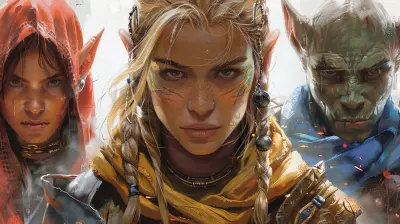
The Evolution of Character Customization in RPGs
From Pixels to Plotlines: How Video Games Became Great Storytellers
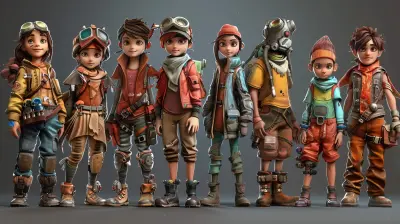
Unleashing Creativity: Inspiring Ideas for Unique Game Characters
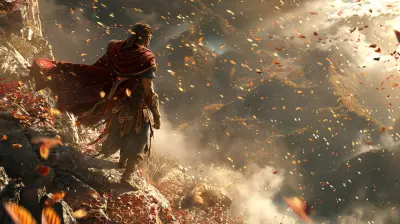
Impactful Combat Systems: What Makes or Breaks an Action Game
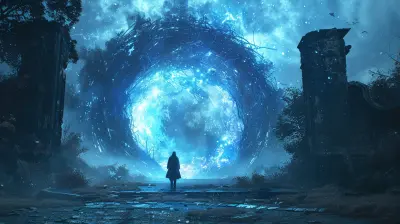
Solving the Mysteries in Returnal with This Step-by-Step Walkthrough